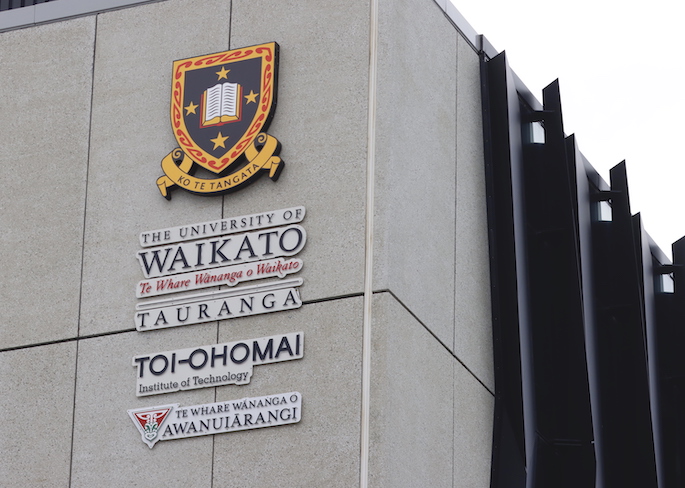The University of Waikato is one step closer to its goal of being carbon neutral by 2030, buoyed by new funding announced by Climate Change Minister James Shaw as part of the $220 million State Sector Decarbonisation Fund.
The University of Waikato received $254,000 which will go towards two projects - replacing a chiller at the Hamilton campus with a low emissions alternative and a campus-wide upgrade of lighting which will see a switch to more efficient LEDs.
These projects will reduce emissions by an estimated 340 tonnes over the next ten years.
This follows $25,000 of co-funding from the Energy Efficiency and Conservation Authority to undertake an Energy Transition Accelerator at the Hamilton campus to help identify further options for reducing energy-related emissions.
'It's great to see the momentum build with our ambitious programme of work and for our staff and students to see some really visible examples of our commitment to being carbon neutral by 2030, says Chief Operating Officer, Jim Mercer.
'While sustainability principles are firmly embedded within our new developments - including The Pā which is set to open in 2022 and transform the campus experience as the new hub of student activity - our big challenge lies with our older infrastructure. This requires us to be innovative and attentive and continue to prioritise this work in everything we do.”
The University is poised to deliver a raft of initiatives at its Hamilton campus within the next six months which will see a significant reduction to emissions.
Over summer they will replace gas hot water boilers in a section of student accommodation with a biomass boiler and CO² heat pump as part of a trial which will inform how they tackle the issue campus-wide.
When lockdown restrictions ease, 50 smart meters will be installed in the Waikato Management School. These will be linked to an energy management system which will provide real-time insights about energy usage for a period of six months, to inform future steps across the campus.
The focus will then shift to smart metering for water, exploration of a large-scale solar power installation, new provisions for e-bike storage and charging, and bold steps towards laying sustainable foundations for an exciting new development within the School of Engineering.
Assistant Vice-Chancellor Sustainability, Professor Lynda Johnston, is encouraged by the programme of work underway and what lies ahead.
'We're proud to be on this journey, walking the talk at a time when our world-first Bachelor of Climate Change (launching in 2022) is making ripples across the globe,” she says.
'Our students especially want warm, energy-efficient buildings powered by clean energy. They also want to see us tackling sustainability issues holistically and meaningfully, setting an example as to how a university can contribute to the regeneration of the social, economic, cultural and environmental wellbeing of the region. This means setting ambitious targets, being transparent about how we're tracking and constantly innovating in areas like travel, waste and water.”
'We've learned a lot over the last two years about how we can get smarter with events, for instance, embracing digital technologies and changing our expectations about in-person attendance. Our challenge will be to maintain a hybrid offering as we establish our new normal, which will reduce the reliance on resource-intensive in-person events.”
'We're also very fortunate to have some world-leading expertise inhouse helping to guide our thinking and implementation along the journey.”
The Waikato School of Engineering is currently leading a groundbreaking programme of research, Ahuora, supporting big industry in Aotearoa to transition to renewable energy for process heat, with the help of $12.5m MBIE Endeavour funding. Āmiomio Aotearoa, a multi-disciplinary team of researchers, is also providing an inspiring example in their work to advance a circular economy concept for New Zealand backed by $10.9m MBIE Endeavour funding.
'It is a really exciting time for the University of Waikato and while we have some hard mahi ahead of us, we're well on the path and taking our responsibilities seriously, inspired in large part by the expertise we have within our own institution,” says Professor Johnston



0 comments
Leave a Comment
You must be logged in to make a comment.